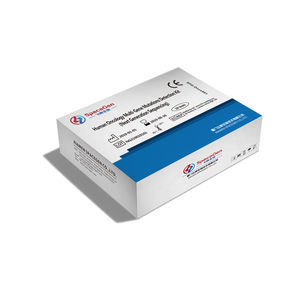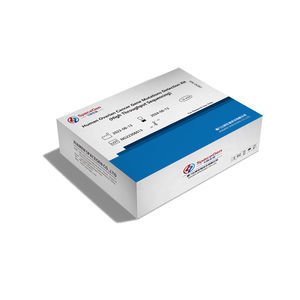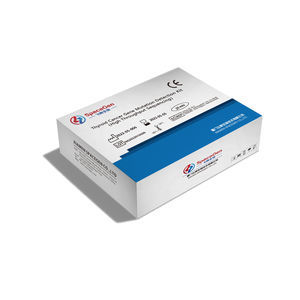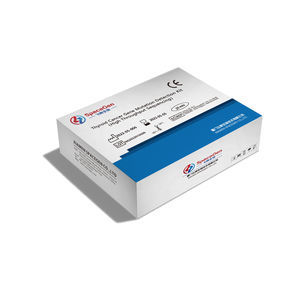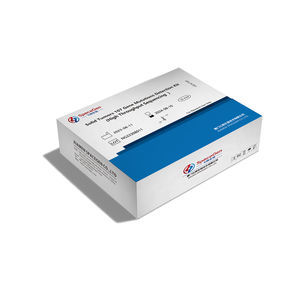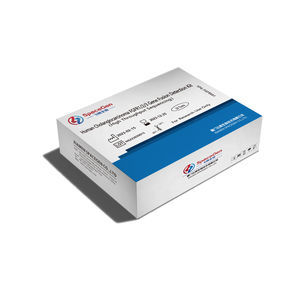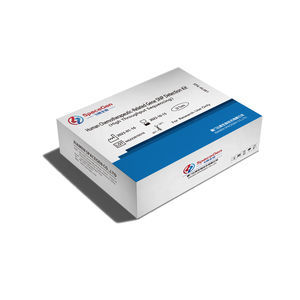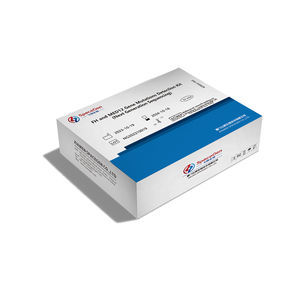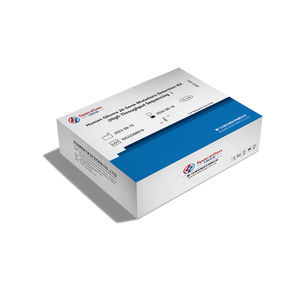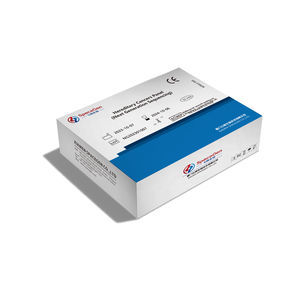

- Company
- Products
- Catalogs
- News & Trends
- Exhibitions
Breast cancer detection kit Brcasen®oncologygeneticBRCA1 gene
Add to favorites
Compare this product
Characteristics
- Applications
- for breast cancer
- Application field
- oncology
- Tested parameter
- genetic, BRCA1 gene, BRCA2 gene, lead
- Sample type
- tissue, saliva
- Analysis mode
- for sequencing
- Result display time
4 h
Description
The susceptible genes for breast cancer, including BRCA1 and BRCA2, are important tumor suppressor genes that play a role in homologous recombination repair (HRR) of DNA damage. Mutations in the BRCA1/2 genes can lead to homologous recombination deficiency (HRD), resulting in a significant increase in genomic instability. The variant status of the BRCA1/2 genes is of significant importance in genetic risk assessment, treatment selection, and prognosis determination for related tumors such as ovarian cancer, breast cancer, pancreatic cancer, prostate cancer, etc. The BRCA1/2 genes have relatively long sequences and diverse forms of mutations, with mutation sites scattered throughout the entire length of both genes. Therefore, BRCA1/2 gene testing must simultaneously cover the coding regions and adjacent boundary regions (ideally within ±20 bp) [1].
BRCA AND HEREDITY
Germline mutations in the BRCA1/2 genes originate in reproductive cells, significantly increasing the risk of developing breast cancer, ovarian cancer, and other related tumors [1]. About 10% of breast cancer patients [2-3], 10-15% of ovarian cancer patients [4], and 10% of prostate cancer patients [5] are caused by germline mutations in the BRCA1/2 genes.
BRCA AND TREATMENT
The variant status of BRCA1/2 genes is closely related to the effectiveness of Poly(ADP-ribose) polymerase (PARP) inhibitors. In recent years, the FDA and NMPA have approved a variety of PARP inhibitors for the treatment of related tumors [1]. Approximately 20% of ovarian cancer patients carry BRCA1/2 gene mutations [7], making them the population that benefits the most from maintenance treatment with PARP inhibitors.
Catalogs
No catalogs are available for this product.
See all of SPACEGEN‘s catalogsRelated Searches
- Assay kit
- Blood assay kit
- Immunoassay assay kit
- Plasma assay kit
- Infectious disease detection kit
- Analysis medical software
- Molecular test kit
- Whole blood detection kit
- Respiratory infection test kit
- Clinical assay kit
- Optical assay kit
- Fluorescence assay kit
- Viewer software
- Real-time PCR test kit
- Research assay kit
- Laboratory software
- Windows medical software
- Oncology test kit
- Laboratory detection kit
- Cell assay kit
*Prices are pre-tax. They exclude delivery charges and customs duties and do not include additional charges for installation or activation options. Prices are indicative only and may vary by country, with changes to the cost of raw materials and exchange rates.

